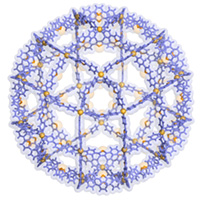Strategic Basic Research Programs, ACCEL
https://www.jst.go.jp/kisoken/accel/en/index.html

Prof. Makoto Fujita, Department of Applied Chemistry at the University of Tokyo Graduate School of Engineering, has been jointly awarded the Wolf Prize 2018 in Chemistry, one of the most prestigious international prizes, together with Prof. Omar M. Yaghi, the University of California, Berkeley.
The Wolf Foundation in Jerusalem awards the Wolf Prize to outstanding researchers in the fields of agriculture, chemistry, mathematics, medicine, and physics; and to artists in the fields of architecture, music, painting, and sculpture. In 2001, Nobel Laureate Ryoji Noyori, Professor Emeritus, was awarded the Wolf Prize in the field of chemistry as well. Japanese researchers who have won both the Wolf Prize and a Nobel Prize in other fields are Youichro Nanbu, Professor Emeritus, and Masatoshi Koshiba, Professor Emeritus, in Physics; and Prof. Shinya Yamanaka in Medicine. Since several researchers have won the Nobel Prize after they were awarded the Wolf Prize, the prize has been regarded as a preliminary Nobel Prize.
Prof. Fujita has been awarded for his contributions to supramolecular chemistry, specifically “conceiving metal-directed assembly principles leading to large highly porous complexes.” The prize presentation ceremony will take place in Jerusalem at the end of May 2018.
Currently, Prof. Fujita is committed to the research and development of the “crystalline sponge method” under the ACCEL program, “Innovative Molecular Structure Analysis Based on Self-Assembly Technology,” JST Strategic Basic Research Programs.
The crystalline sponge method was developed based on the concept of “metal-directed self-assembly,” which was introduced to supramolecular chemistry by Prof. Fujita. With this methodology, it is possible for X-ray crystallography to reveal the structures of various types of molecules using only a few micrograms (µg) of samples instead of crystalizing themselves. It significantly shortened the time needed for analyzing the structure of molecules. Due to this advantage, widespread use of the crystalline sponge will contribute to changing the manner in which research is conducted and become a cutting-edge tool for provoking innovation in many fields, such as drug discovery, chemicals and foods.
JST approved projects:
◇ Strategic Basic Research Programs CREST
- Research Area: Single Molecule and Atom Level Reactions
“Self-organizing Molecular Systems Utilizing Transition Metals,” Research Director, FY1997-FY2002. - Research Area: Creation of Novel Nano-material/System Synthesized by Self-organization for Medical Use
“Development of Self-Organizing Molecular Systems for Chemical Translation of Biological Functions” Research Director, FY2002-FY2007. - Research Area: Development of the foundation for nano-interface technology
“Chemical study on self-assembly finite nano-interface,” Research Director, FY2007-FY2013.
◇ Strategic Basic Research Programs ACCEL
- ”Innovative Molecular Structure Analysis based on Self-Assembly Technology,” Research Director. (FY2014-FY2018, ongoing)
Link to Prof. Fujita’s ACCEL page/JST:
https://www.jst.go.jp/kisoken/accel/en/research_project/completed/h25_05.html
Link to the award article/The Wolf Foundation:
https://wolffund.org.il/?dir=site&page=winners&cs=941&language=eng